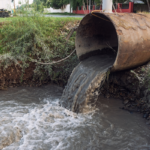As coronavirus wreaks havoc on the economy, many businesses have had to shutter their doors, some temporarily and others permanently. With less contents and risk of damage by occupants, you may think that vacant properties pose less risk than one that is occupied. But this is sadly not the case.
For landlords, there is not only a loss of rental income, but also an increased risk of problems such as illegal squatting, vandalism, metal theft, fire or flood damage, and fly-tipping. Vacant properties are also linked to increased rates of crime and declining property values. The Department of Housing and Urban Development adds that the maintenance or demolition of vacant properties is a large expense of municipalities or property owners.
Practical Steps for Managing Risk
- Increase Security: Check your property for working security alarms and secure windows and doors. Webcams and security cameras can be useful, and may be required by your insurer. If necessary, security guards can be hired and other physical security measures, such as perimeter fencing and steel doors, can be implemented.
- Inspect Regularly: Visit the property once a week so that you can check for structural damage and you can report any malicious damage as soon as possible. Include random inspections and make sure all doors, windows, and locks are in working order and are secured.
- Disconnect utilities: Turn off gas, water, and electricity to avoid potential flood and gas leaks.
- Reduce Risk of Theft: Remove all valuables from the premises. Make sure the site stays clean and free of combustible materials so as to reduce the risk of fires.
- Keep It Clean: A well-maintained property deters off potential thieves or squatters by giving the illusion of use. Make your building less of a target for break-ins or vandalism.
- Make a Plan: Something goes wrong. What now? Make a mental note of how you will deal with site incursions. Be sure to contact the police and your insurer as soon as possible and provide them with the necessary evidence to assist them in taking action.
Notify Your Insurer
As soon as a property is vacated, owners or managers must alert their insurance company immediately. Failure to do so may result in future claims not being covered. Furthermore, landlords may not be as protected as they think when it comes to the risks of a vacant property. Bear in mind that landlords are still liable if people enter the property illegally and are injured. Check your policy to determine what you are covered for, and work with an insurer to fill the gaps.




